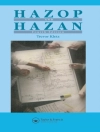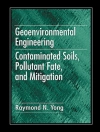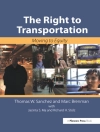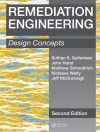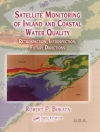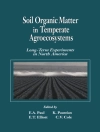This volume highlights key moments and movements in this ‘competence turn’ in Education for Sustainable Development (ESD), and explores the different ways in which competences have been conceptualized and implemented. By marshaling a dialogue between chapters and sections, the book provides a coherent whole that will become a key source on ESD competences. The contributors develop a conceptual map against which to chart existing (and future) ESD competence frameworks, offer new critical case studies that explore the implementation of educator competences in ESD at different structural levels in different European contexts, explore the link between pedagogy and educator competence through hitherto unpublished case studies based on current practices across Europe, and consider the impact of the COVID-19 pandemic on ESD and educator competence. The book comprises 23 chapters divided into four sections, with an introduction and concluding chapter. Section One introduces concepts and models related to ESD competences, while the following two sections focus on implementation and pedagogy. In light of the foregoing material, the shorter Section Four is both reflective and forward looking. The primary audience for this book will be academics and students working in the fields of Education, Sustainability Science and related disciplines.
Table des matières
Part One. Conceptualising competences.- Chapter1. Introduction.- Chapter2. The Competence Turn: Historical perspective.- Chapter3. Educators’ competence frameworks in education for sustainable development.- Chapter4. What do key competencies in sustainability offer and how to use them.- Chapter5. The Rounder Sense of Purpose (RSP) model set into perspective and the extent to which this represents a pedagogy for transformation.- Chapter6. On the educational difference between being able and willing.- Chapter7. Complexity and criticality in relation to ESD competences.- Chapter8. Post-Normal Science, transdisciplinarity and uncertainty in relation to educators’ competences: a conversation with Silvio Funtowicz.- Chapter9. ESD competences for deep quality in education.- Part Two. Integrating competences.- Chapter10. The highs and lows of working education for sustainable competences into HEI framework.- Chapter11. Breaking the mould: educators as agents of change.- Chapter12. Framing the frames: integrating an ESD approach into an existing national framework.- Chapter13. The rise of competence-based learning in The Netherlands and its impact on the implementation of ESD at Marnix Academie.- Chapter14. Working on ESD teacher competences in Switzerland: a case study at the University of Teacher Education Vaud.- Chapter15. Development and assessment of ESD competences: staff training at the University of Vechta.- Chapter16. ESD competences and teacher educators’ professional development: Findings and implications of the Cyprus example.- Part Three. Pedagogy and competences.- Chapter17. Connections between sustainable development competences and pedagogical approaches.- Chapter18. Art and connectedness within sustainability: educating through aesthetic pedagogies.- Chapter19. Gamification for sustainability: a possible renaissance of role-playing game mechanics in pedagogy.- Chapter20. Outdoor and sustainability education: how to link and implement them in teacher education. An empirical perspective.- Chapter21. Assessing sustainability competences – a discussion on what and how.- Part Four. Conclusions.- Chapter22. Lessons learned and future research directions in educating for sustainability competencies.- Chapter23. Closing thoughts – the role of educator competences for ESD in times of pandemic.
A propos de l’auteur
Dr. Paul Vare leads research development at the School of Education & Humanities, University of Gloucestershire, UK.
Dr. Nadia Lausselet is a teacher educator in the teacher training faculty HEP Vaud in Lausanne, Switzerland.
Dr. Marco Rieckmann is a Professor of Higher Education Development in the Faculty of Education & Social Sciences at University of Vechta, Germany.


